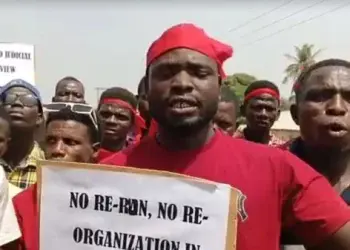President John Dramani Mahama has assured international investors that Ghana‘s economy is on a path of stability, highlighting the local currency’s (Ghana cedi) performance on the global market.
Speaking during an investment forum in Tokyo, Japan, at the 9th Tokyo International Conference on African Development (TICAD IX), Mahama said the Ghana cedi has become the world‘s best-performing currency in 2025, strengthening investor confidence and making Ghana an attractive destination for foreign capital.
He noted that the strong performance of the cedi reflects improved fiscal discipline, enhanced export earnings, and increased inflows from development partners.
According to him, these gains show that Ghana is gradually restoring credibility in its financial management.
He said “For those of you who know the history of the Ghanaian cedi, it’s been one of the most volatile currencies in Africa, and a few years back, we were said to be the worst-performing currency.
“I’m happy to announce that this year, the Ghana cedi has been the best-performing currency in the world.”
He indicated that falling inflation, recent sovereign credit upgrades, and wide-ranging reforms aimed at lowering the cost of doing business as clear signs of Ghana’s turnaround.
“Inflation rose to a high of almost 23% in 2024, and it’s currently down to 13.7% and we expect that by the end of the year, it will hit single digits.
“And as Simon said, we’ve been upgraded from junk status to B minus with a stable outlook, and I’m certain that in the next review, we’re going to be upgraded again,” Mahama said.
He added that the government reforms in the financial and energy sectors, alongside infrastructural investments, have created new opportunities for growth across agriculture, industry, and digital technology.
Mahama also positioned Ghana as a stable, democratic, and business-friendly hub in West Africa, stressing its role as host of the African Continental Free Trade Area (AfCFTA).
He encouraged Japanese investors to take advantage of Ghana’s strategic position in West Africa, stressing that the country remains a hub for trade under the AfCFTA.
He said “So far, almost 50 African countries have signed agreements that allow us to export duty-free, tariff-free into each other’s markets. And once you register your product and it meets all the standards, you can export duty-free and tariff-free into each other’s markets.”
The cedi’s strong performance is expected to boost Ghana’s economic outlook, reduce import costs, and improve business confidence in the coming months.












